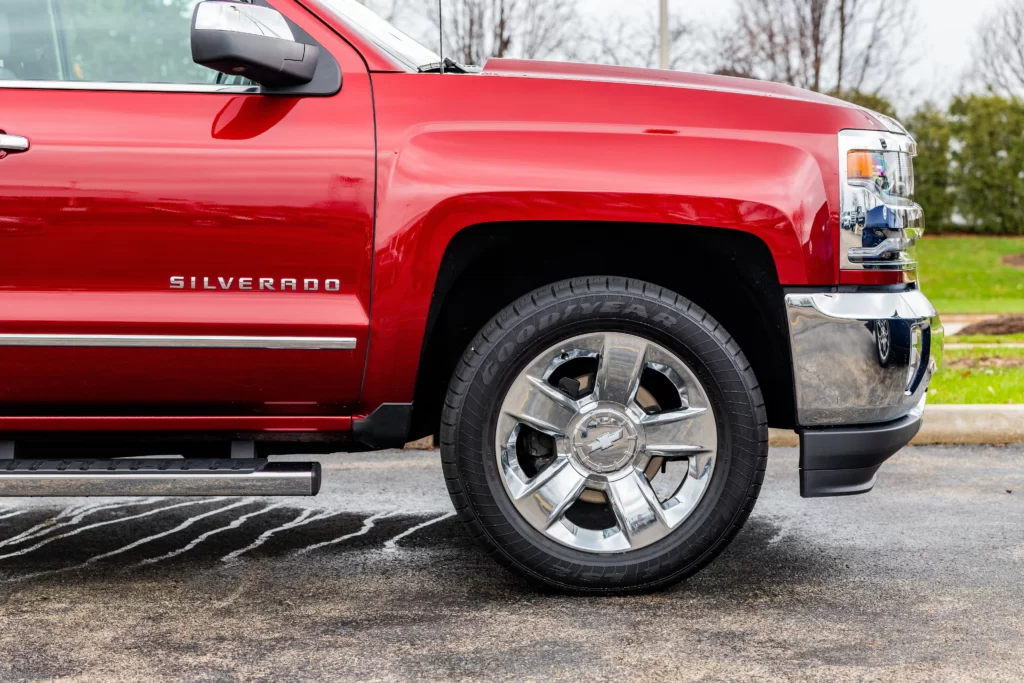When it comes to the question of whether Chevy Silverado vehicles are plagued by transmission problems, the answer is a resounding affirmative. Numerous consumer reports and a multitude of complaints from various Chevy Silverado 1500 owners have surfaced, primarily centered around transmission system failures and related issues.
Chevrolet & Transmissions
Automatic transmissions play a pivotal role in ensuring a vehicle’s smooth operation. The last thing any driver wants is to encounter grinding noises, a dead battery, or sudden surges while maneuvering their Chevrolet Silverado 1500. Disturbingly, these transmission issues have become a prevalent concern, warranting attention from both consumers and the manufacturer.
Chevrolet, a company with a longstanding reputation for producing quality vehicles dating back to classics like the ’55 Chevy and the Cameo carrier pickup, has seen its reputation challenged by the growing number of complaints from Silverado owners. The recurrent theme among these grievances is the transmission problems that plague their vehicles.
The Chevy Silverado 1500, specifically models produced from 2012 to 2019, has garnered a reputation for common issues, including high fuel consumption and selector switch failures. These problems tend to rear their heads after Silverados have clocked significant mileage, sometimes well past the million-mile mark. Needless to say, transmission issues can significantly dampen the ownership experience of a new vehicle.

The transmission, which serves as the vital link between a vehicle’s engine and its wheels, is essential for smooth and safe driving. When a transmission functions optimally, a vehicle effortlessly decelerates, accelerates, and comes to a stop without any hitches. However, a faulty transmission can lead to erratic behavior, making it difficult for drivers to control their vehicle and increasing the risk of accidents or damage to other vehicle components.
How to Tell if Your Transmission Has Issues
Common transmission problems in vehicles can include manufacturing defects, transmission fluid leaks, low or burnt transmission fluid, clunking noises during gear shifts, jerking movements, and unusual noises when the vehicle is in neutral. Unfortunately, these issues are not exclusive to other vehicles; they have also plagued Chevy Silverados.
Some of the most commonly reported transmission problems in Chevy Silverados, as documented by California Lemon Lawyer, include:
- Hard or rough shifting: This problem disrupts the smoothness of the driving experience, making it challenging to shift between gears. It may be indicative of low or degraded transmission fluid or a faulty vacuum modulator valve.
- Sudden jerking: Sudden, jarring movements when accelerating can be highly discomforting for passengers and drivers alike. Jerking is a sign of transmission system issues and can occur relatively early in a Silverado’s life or after extensive mileage.
- Trouble downshifting: Difficulty downshifting is another issue Silverado owners have encountered. Downshifting problems can affect the vehicle’s performance and drivability.

These transmission problems in Chevy Silverados can be attributed to various causes. One common culprit is the failure of the Transmission Control Module (TCM), responsible for transmitting signals from various vehicle sensors to the transmission, allowing it to shift gears as needed. When the TCM or related sensors fail, it can disrupt the transmission system.
Another leading cause of transmission problems, frequently reported by Silverado owners, is torque converter failure. A deteriorating torque converter can lead to transmission fluid leaks and eventual system failure. Ignoring even minor transmission issues can result in more significant problems down the road, potentially leading to costly repairs.
Replacing a vehicle’s transmission system is a major undertaking, both in terms of complexity and cost. It is akin to replacing an engine, which can put a significant dent in your finances. If budget constraints prevent a complete transmission replacement, seeking professional diagnosis and repair at a certified auto shop is the best course of action.
For those contemplating the purchase of a Chevy Silverado, it’s advisable to consider models from 2011 and earlier, as the transmission problems primarily affect those from the 2012 model year onwards. If you already own a Chevy Silverado and notice any of the aforementioned transmission issues, promptly visiting an auto repair shop is essential to address the problem.
Whether you’re grappling with issues related to the pressure regulator system, automatic transmission, or valve body in your Chevrolet Silverado, professional assistance is readily available. At Marshalls Transmission, located in Sparta IL, we specialize in diagnosing and resolving Chevy Silverado transmission problems, including issues related to transmission fluid flushes and shifting. We’re committed to addressing your Chevy Silverado’s transmission concerns while minimizing the need for costly repairs.